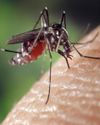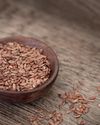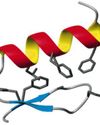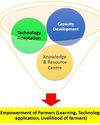
In two separate studies analyzing different measures of healthy plant food consumption, researchers found that both young adults and postmenopausal women had fewer heart attacks and were less likely to develop cardiovascular disease when they ate more healthy plant foods. The American Heart Association Diet and Lifestyle Recommendations suggest an overall healthy dietary pattern that emphasizes a variety of fruits and vegetables, whole grains, low-fat dairy products, skinless poultry and fish, nuts and legumes and nontropical vegetable oils. It also advises limited consumption of saturated fat, trans fat, sodium, red meat, sweets and sugary drinks.
Researchers examined diet and the occurrence of heart disease in 4,946 adults enrolled in the Coronary Artery Risk Development in Young Adults (CARDIA) study. Participants were 18- to 30-years-old at the time of enrollment (19851986) in this study and were free of cardiovascular disease at that time. Participants included 2,509 Black adults and 2,437 white adults (54.9% women overall) who were also analyzed by education level (equivalent to more than high school vs. high school or less). Participants had eight follow-up exams from 1987-88 to 2015-16 that included lab tests, physical measurements, medical histories and assessment of lifestyle factors. Unlike randomized controlled trials, participants were not instructed to eat certain things and were not told their scores on the diet measures, so the researchers could collect unbiased, long-term habitual diet data.
هذه القصة مأخوذة من طبعة July - August 2021 من Scientific India.
ابدأ النسخة التجريبية المجانية من Magzter GOLD لمدة 7 أيام للوصول إلى آلاف القصص المتميزة المنسقة وأكثر من 9,000 مجلة وصحيفة.
بالفعل مشترك ? تسجيل الدخول
هذه القصة مأخوذة من طبعة July - August 2021 من Scientific India.
ابدأ النسخة التجريبية المجانية من Magzter GOLD لمدة 7 أيام للوصول إلى آلاف القصص المتميزة المنسقة وأكثر من 9,000 مجلة وصحيفة.
بالفعل مشترك? تسجيل الدخول

An insight into Chandipura virus in India
Recently lot of news regarding disease due to Chandipura virus has emerged in various newspapers/magazines. After reading the reports published it seems that thing is still brewing in the natures nest and it could affect mankind.

Why elephants never forget?
An elephant has a very large brain for its size and the 'temporal lobe' region responsible for memory is more developed with a greater number of folds - this results in powerful abilities to 'download' important survival data such as where to find food and water, and who is friend or foe.

Use of Algae for Wastewater Treatment Containing Heavy Metals
Wastewater treatment is a critical environmental issue particularly when it comes to the removal of heavy metals.

Nano priming Seeds: A Small Innovation Sparkling Big Advances in Germination
Nanopriming is an emerging agricultural technique where the seeds are treated with nanoparticles to improve their germination, growth, and overall performance.

Nobel Laureates in Physics 2024: Revolutionizing AlThe Physics Foundations Behind Machine Learning
This year's two Nobel Laureates in Physics have used tools from physics to develop methods that are the foundation of today's powerful machine learning.

Revolutionizing Biology: The 2024 Nobel Prize in Chemistry Celebrates Breakthroughs in Protein Design and Structure Prediction
The Nobel Prize in Chemistry 2024 is about proteins, life's ingenious chemical tools.

New findings on animal viruses with potential to infect humans
Scientists investigating animal viruses with potential to infect humans have identified a critical protein that could enable spillover of a family of organisms called arteriviruses.

Father-Daughter Team Decodes Mars' Alien Signal
There is no definitive answer to whether aliens exist, but there is a lot of work being done to find out:

Krishi Vigyan Kendras: Working for Farmer's Welfare
Krishi Vigyan Kendras (Farm Science Centres) are the District level institution serving as an agriculture knowledge resource & capacity development centre which plays indispensable role in front line extension regarding agriculture system in scientific way.

Sixth generation Computer: The future computing technology
We are in a transition towards a digital world, where everything will be dealt with in digital format.